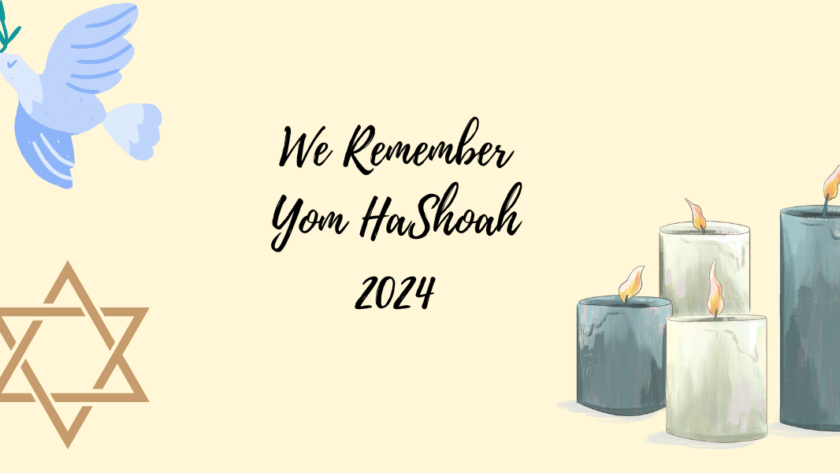Holocaust Remembrance Day 2024 fell on a Saturday this year, so to keep w/ the tradition of this blog, I’m moving the post to today instead. The Holocaust, or the Shoah, went on during World War II, but the seeds were sown for it before then. It was state-sanctioned genocide that spanned the course of the Third Reich’s existence, including within the occupied countries.
This year’s theme is Recognizing the Extraordinary Courage of Victims and Survivors of the Holocaust. In a regime where fascism and totalitarianism was the law of the land, starting in 1933 when Hitler came to power w/ the help of supporters and his army of thugs, it took so much to question the propaganda and the indoctrination into hateful party rhetoric.
It’s important to remember that while it seemed like everyone thought the way Hitler and his army of thugs did, not everyone did. Even w/in the ranks of the SS, and in other factions of the Nazi Party, there were those few who had their doubts. One of the more well-known agents in the Nazi Party was none other than Oskar Schindler.
Many out there know his story, after having seen Schindler’s List, which came out in 1993. The real Oskar Schindler was an opportunist, and had some rather questionable values. He was a war profiteer, and after having had a change of heart, he set out on a quest to save as many Jews as he could. He employed many Jews in his enamelware and munitions factories, using his connections in the Abwehr to safeguard his employees.
He bankrolled his sham of a munitions factory operation through bribes, black market transactions, and his own funds in order to get the Powers that Be in the Nazi Party off his case. Soon, all that money ran out, and by the time that happened, the war ended.
Long story short, the word got out about Schindler’s deeds during the war, and despite his success during the war, he lived in poverty and mutual aid for the remainder of his life. He died in 1974, and is buried on Mount Zion in Israel.
Another resister we should talk about is Sophie Scholl. She and her brother Hans came of age in the 1930s, when Hitler came to power. At first, they were involved in the League of German Girls and the Hitler Youth respectively. As time went on, they saw this stuff wasn’t as great as they were led to believe it was, and they started questioning the status quo. Some of those in her life also held worldviews that ran contrary to the party line.
After a series of events, the straw that broke the camel’s back came when both Sophie and Hans had run-ins w/ the Gestapo for their dissenting beliefs. They both went on to college (or university), and made friends w/ a group that had some shared interests in the arts. Eventually, this group evolved into The White Rose, and they campaigned against the Third Reich ideology.
The Gestapo caught Hans and Sophie, and their friend Christoph, and executed them in 1943. Later this month, it’ll be the 80th anniversary, and I’ll be observing a moment of silence in their honor.
Even though Hans, Sophie, and Christoph didn’t live to see the long-deserved demise of the Third Reich, or the fruits of their efforts, others who spoke against the party line took up the fight for democracy. This shows that while democracy can be delayed, it can never die.
Let’s remember Hans, Sophie, Christoph, and Oskar, along w/ the others who spoke against this destructive, hateful regime. Let’s also remember those who didn’t survive, including Anne and Margot Frank, along w/ the van Pels family.
This year, I’m also remembering Shoil Maizler. He was born in 1882, and married to Sheiva. Little else is known about him beyond this, so let’s speak his name.
May you rest in peace, Shoil.



